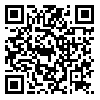1. American Psychiatric Association. Diagnostic and statistical manual of mental disorders: DSM-5. Washington, DC: American psychiatric association; 2013 May 22. [
DOI]
2. Alavi SZ, Savoji AP, Amin F. The effect of social skills training on aggression of mild mentally retarded children. Procedia-Social and Behavioral Sciences. 2013 Jul 9;84:1166-70. [
DOI]
3. Semrud-Clikeman M, Semrud-Clikeman M. Assessment of Social Competence in Children. Springer US; 2007. [
DOI]
4. Gresham FM. Conceptual and definitional issues in the assessment of children's social skills: Implications for classifications and training. Journal of clinical child psychology. 1986 Mar 1;15(1):3-15. [
DOI]
5. Sundqvist A, Rönnberg J. Advanced theory of mind in children using augmentative and alternative communication. Communication Disorders Quarterly. 2010 Feb;31(2):86-97. [
DOI]
6. Abbeduto L, Short‐Meyerson K, Benson G, Dolish J. Relationship between theory of mind and language ability in children and adolescents with intellectual disability. Journal of Intellectual Disability Research. 2004 Feb;48(2):150-9. [
DOI]
7. Lo ST, Siemensma E, Collin P, Hokken-Koelega A. Impaired theory of mind and symptoms of autism spectrum disorder in children with Prader–Willi syndrome. Research in developmental disabilities. 2013 Sep 1;34(9):2764-73. [
DOI]
8. Charman T, Campbell A. Theory of mind and social competence in individuals with a mental handicap. Journal of Developmental and Physical Disabilities. 2002 Sep; 14:263-76. [
DOI]
9. Astington JW. The child's discovery of the mind. Harvard University Press; 1993. [
Article]
10. Watson AC, Nixon CL, Wilson A, Capage L. Social interaction skills and theory of mind in young children. Developmental psychology. 1999 Mar;35(2):386. [
DOI]
11. Bosacki S, Wilde Astington J. Theory of mind in preadolescence: Relations between social understanding and social competence. Social development. 1999 Jul;8(2):237-55. [
DOI]
12. Doherty M. Theory of mind: How children understand others' thoughts and feelings. Psychology Press; 2008. [
DOI]
13. Perner J, Frith U, Leslie AM, Leekam SR. Exploration of the autistic child's theory of mind: Knowledge, belief, and communication. Child development. 1989 Jun 1:689-700. [
DOI]
14. D'Esterre AP, Rizzo MT, Killen M. Unintentional and intentional falsehoods: The role of morally relevant theory of mind. Journal of experimental child psychology. 2019 Jan 1;177:53-69. [
DOI]
15. Florit E, De Carli P, Giunti G, Mason L. Advanced theory of mind uniquely contributes to children’s multiple-text comprehension. Journal of experimental child psychology. 2020 Jan 1;189:104708. [
DOI]
16. Hecht H, Wittchen HU. The frequency of social dysfunction in a general population sample and in patients with mental disorders: A comparison using the social interview schedule (SIS). Social psychiatry and psychiatric epidemiology. 1988 Mar;23:17-29. [
DOI]
17. Spelling M. The effect of an empathy training program on aggression in elementary age children. East Texas Baptist University; 2007. [
Article]
18. Hamm EM. Playfulness and the environmental support of play in children with and without developmental disabilities. OTJR: Occupation, Participation and Health. 2006 Jun;26(3):88-96. [
DOI]
19. Happé FG. An advanced test of theory of mind: Understanding of story characters' thoughts and feelings by able autistic, mentally handicapped, and normal children and adults. Journal of autism and Developmental disorders. 1994 Apr;24(2):129-54. [
DOI]
20. Leslie AM. Pretense and representation: The origins of" theory of mind.” Psychological review. 1987 Oct; 94(4):412. [
DOI]
21. Rakoczy H, Tomasello M. Two‐year‐olds grasp the intentional structure of pretense acts. Developmental Science. 2006 Nov;9(6):557-64. [
DOI]
22. Muris P, Steerneman P, Meesters C, Merckelbach H, Horselenberg R, van den Hogen T, et al. The TOM test: A new instrument for assessing theory of mind in normal children and children with pervasive developmental disorders. Journal of autism and developmental disorders. 1999 Feb;29:67-80. [
DOI]
23. Ghamrani A, Alborzi SH, Khayer M. Validity and reliability of the theory of mind test (TOM test) for use in Iran. Journal of Psychology. 2006;10(2):38. [Persian]
24. Parandin SH. Construct social self-competency questionnaire and its normalization of teenagers in Tehran city (Doctoral dissertation, MSc. Thesis). [Tehran]: Allameh Tabataba'i University; 2006. [Persian]
25. Ghasemi Z. The effectiveness of play therapy on social cognitive development based on theory of mind in preschool children (Master's thesis). [Iran, Isfahan]: Payam Noor University, Isfahan Province, Natanz Payam Noor Center; 2017. [Persian]
26. Lin SK, Tsai CH, Li HJ, Huang CY, Chen KL. Theory of mind predominantly associated with the quality, not quantity, of pretend play in children with autism spectrum disorder. European child & adolescent psychiatry. 2017 Oct;26:1187-96. [
DOI]
27. Lillard AS. Pretend play skills and the child's theory of mind. Child development. 1993 Apr;64(2):348-71. [
DOI]
28. Tavakoli ZS, Demehri F, Azizi M. Theory of mind teaching on the social competencies and restraint in children of Down syndrome. Journal of Disability Studies. 2019 Mar 10;9:52-. [
Article]
29. Larijani Z, Razeghi N. Impact of Art Therapy on Social Development in Students with Intellectual Disabilities. JOEC 2008; 8 (1) :43-52. [Persian] [
Article]

 ، حمید علیزاده2
، حمید علیزاده2 
 ، سعید رضایی3
، سعید رضایی3 
 ، مهدی دستجردی3
، مهدی دستجردی3 
 ، محمد عسگری4
، محمد عسگری4 




